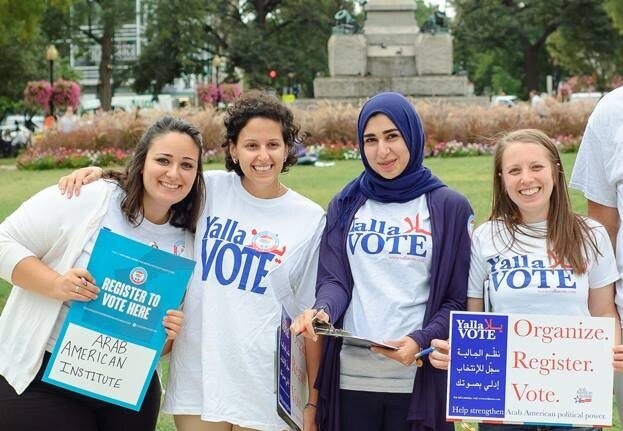The Rise of Arab American Student Organizations Providing Identity to Students on US Campuses

By Yaara Aleissa / Arab America Contributing Writer
The current precedent
The presence of Arab American students on US campuses has increased in recent years. Yet, the display of Arab culture remains underrepresented. A student’s sense of community on campus plays a role in their success in college. Numerous students from different educational, cultural, and religious backgrounds are enjoined on campus. But, they need a place to unite to share their similarities and differences.
In the 2015 Gallup-Purdue Index Report, the study found students’ perception of higher education was most impacted by how connected they felt to their peers, “relationships most affect graduates’ perception that their education was worth the cost”.
For many students, undergrad is not their final stop. This means they are maintaining their personal schedules of courses, extracurriculars, work, internship, or volunteer experience to enhance their resumes. It is a lot to handle. Therefore, community building to support them through this journey becomes essential.
A change begins
With this realization, it has led schools to use their diversity index as a means of attracting students to their schools. Colleges know it has become a part of students’ decision factor for which institution they will attend.
Musa al-Gharbi, a Sociology fellow at Columbia University, concluded in his research that mandatory diversity training is typically ineffective and reinforces existing biases naming them to be “demonstrably ineffective or even counterproductive”. One question he does push scientists and educators to consider is, “Do they foster greater collaboration across groups?”.
One way a community can be built on college campuses is through student-led organizations. The vast selection of student-led organizations can vary in focus. From specific career paths, sports, social justice movements, and cultural togetherness. Each of these organizations shares the similarity of building a sense of community where students feel seen and represented.
A graduate of Boston University wrote a reflective piece on her experience as a member of Boston University’s Filipino Student Association (BUFSA) and expressed, “I now recognize that without BUFSA, I probably wouldn’t have made it to graduation” showcasing the role these organizations serve on college campuses.
Currently, clubs focussed on bringing together students of different cultural backgrounds are increasing. Specifically, Arab Student Association or the alternative Middle Eastern & North African Student Association (MENSA). These clubs are not a recent invention but their popularity is spreading.
One of the oldest Arab Student Associations is at the Massachusetts Institute of Technology (MIT) and has been around since 1958. These clubs continue to come up across the United States. New chapters forming to showcase how students come together under this shared commonality of culture.
Starting a club
The presence of the Arabic language has been a part of many universities for years. However, it is only recently that spaces are forming for students to celebrate their heritage with other Arab students.
Although, it is important to note this may not be something that all universities have implemented. Each campus has availability of resources and bylaws students are forced to overcome in order to implement such an organization. The University of Louisville recently implemented its first MENSA group. It is the only student organization that brings together Arab American students.
Speaking with the Social Media Manager of MENASA at the University of Louisville, Joud Albakari, she shares what inspired the start of the club. She was already a part of the Muslim Student Association on campus as a means to connect with Arabs. However, through her classes, she realized many Christian Arabs weren’t able to connect with others at all.
Albakari was able to connect with other individuals that were under the same agreement as her. There needed to be a community for people to come together. “Not just a place to educate people about religion we already have an organization like that, not a place to educate about politics, we already have an organization like that, it is purely for enjoyment and relaxation,” Albakari said.
As these clubs form they have focussed on Arab students and the Arabic language. Yet, it stems further than that. Albakari also touched on students that come from adjacent Arab countries yet don’t identify as Arabs. Turkish and Persian students are also able to find community in an organization such as MENASA. As these initiatives continue to become more prevalent on college campuses, we allow our Arab American students to be seen and heard.
Check out the Arab America Blog here!








